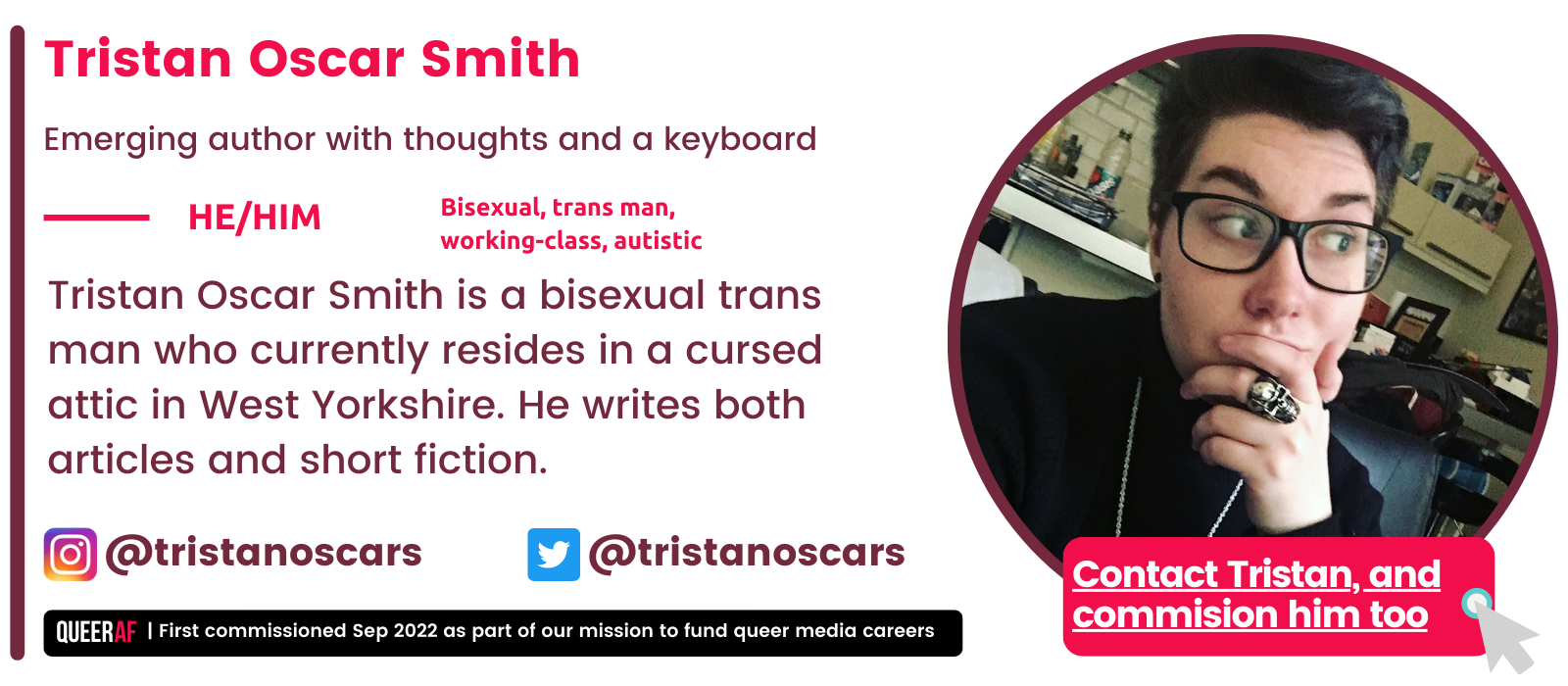When it comes to queer identity, mine is not particularly complex or controversial.
Aside from a smattering of biphobes and transphobes, other queer people don’t tend to think that me being a bisexual trans man is harmful to anyone.
Sometimes, though, people will claim that there are queer identities which are harmful to “real” queer people.
The transmasc lesbian, the bi aroace, the pansexual, the trans man who wears dresses, the bi lesbian, the non-binary person who uses neopronouns… I’ve been told that these people describing their own identities and experiences with the words that fit them best is somehow harming me or invalidating me.
But how could another queer person’s genuine, good faith label hurt me or invalidate my identity – or anyone else’s, for that matter?
What can cause harm, though, is label policing: the obsession with which people, labels, and ways of being queer are “valid”. This can also be described as a form of gatekeeping or exclusionism.
The most extreme form of this comes when some anti-trans campaigners protest trans women calling themselves women and trans people assigned female at birth being allowed to call themselves anything but.
They argue that the definitions of man and woman are sacrosanct and can’t include trans people, that their (cis) womanhood is somehow invalidated by trans people existing.
The majority of the LGBTQIA+ community sees this position as a marginal and bigoted one. So why is this part of their beliefs used against other queer people?
Queerness is delightfully messy. Rigid definitions and strict rules about the correct ways to perform gender and sexuality are what created the closet and the shame and harassment that most of us have faced.
Why should we recreate that for other people, just because their experiences, journeys, and language preferences aren’t the same as ours? Why should we deny others autonomy, identity, and the chance to self-describe in a way that makes them feel whole?
The closest I’ve seen to a genuine argument is that cishet people don’t respect those with more complicated or unusual identities, so it’s better to throw them under the bus to gain respect.
But is it even real respect if it’s so conditional on us acting ‘normal’ enough? At what point are we just acquiescing to “I don’t mind the gays as long as they don’t rub it in my face”?
Despite my uncomplicated and uncontroversial identity, label policing will never benefit me.
When we decide it’s acceptable to police the identities of one type of queer person, we open the door for it to be turned on any one of us.
What's in your Queer Gaze? Tell us and get paid to write up your perspective, while improving your writing skills and building a portfolio

The Queer Gaze is changing the media
The Queer Gaze is our landmark scheme commissioning, mentoring and running skill sessions with queer writers.
This article was just one part of our free weekly newsletter that helps you understand the queer headlines and stay on top of the latest LGBTQIA+ content - all while we support queer creatives.
It's written by Jamie Wareham and a different queer creative each week. Hundreds of people trust us to give them everything they need to navigate the ever-changing queer world every Saturday morning. 🏳️🌈
We are an independent platform launching the careers of emerging and LGBTQIA+ creatives driven by people, not advertisers.
We rely on members like Cleo to fund the Queer Gaze scheme. Become a QueerAF member to commission queer creatives directly - and see your name here too.










